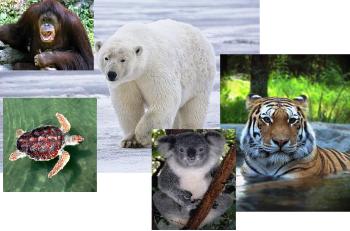Background

In present condition, global climate change has been a major threat on ecological communities ranging from polar terrestrial to tropical marine environments. Over the last century, atmospheric temperature has increased by an average of 0. 60 C and is expected to rise by 1.1- 6.40C over the next 100 years. This rising temperature has increased the intensity and frequency of weather extremes due to which a large number of species are facing risk of extinction. Studies have shown that species existing on lower latitude has narrow tolerance curves and small increments in temperature variability will have a large negative effect on their fitness. So, tropical species are more sensitive to temperature fluctuations as compared to temperate species. But on the other hand, the temperature in the polar region is increasing rapidly as compare to the equatorial region. This uneven distribution of temperature sensitive species and warming rate has highlighted the need for combined studies of temperature variability and sensitiveness of species to predict how the ecosystems will respond to increasingly variable climate.
Objectives of this project are:
- To investigate how sensitivities of species to increasing temperature variance affect extinction risk.
- To understand how connectance and species-richness affects community robustness with respect to increasing temperature variance.
Responsible for this page:
Director of undergraduate studies Biology
Last updated:
05/19/12
